Fairways Debt enables you to create filters to refine item lists. Filters can be applied at three levels:
- Personal: The filters you create are only visible to yourself, i.e. your filters.
- Organization: The filters created are visible to all users of that organization. Only administrator users are able to create organization filters.
- Common: Similar to organization filters, but implemented by developers, and therefore not editable by any users.
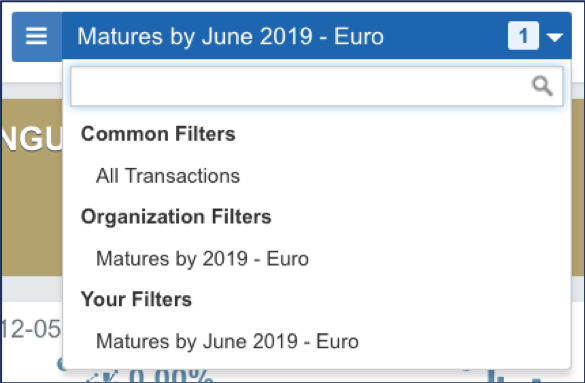
Log In to Fairways Debt
- Log in to your Fairways Debt account.
- Select a customer account, if relevant.
The account dashboard displays.
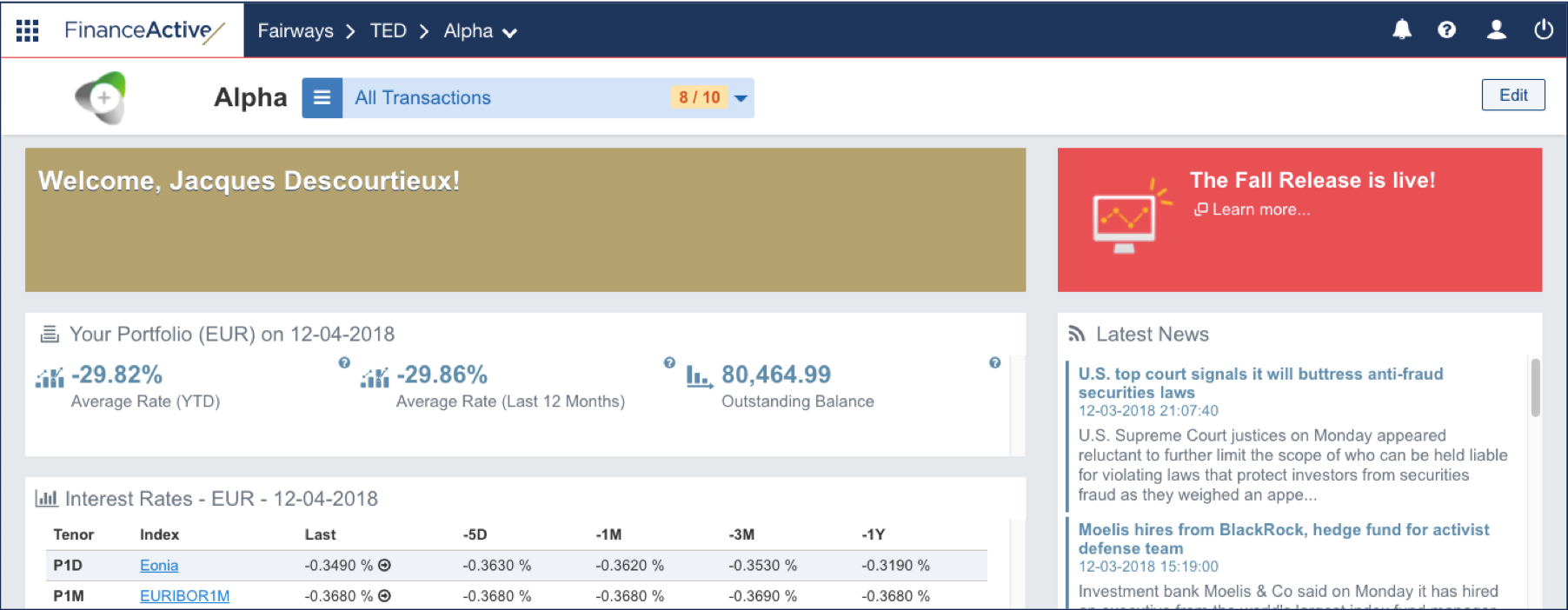
Create a Personal Filter
- Click Menu
 beside a filter bar.
beside a filter bar. - Click Create Filter.

- Complete the form with all relevant details.
Note: Fields marked with an asterisk * are mandatory.
| Field | Description |
|---|---|
| Name | Filter name. |
| Description | Additional details about the filter. |
| Criteria | Configure filter criteria, min. 1 and max. 5. |
- Click OK to confirm.
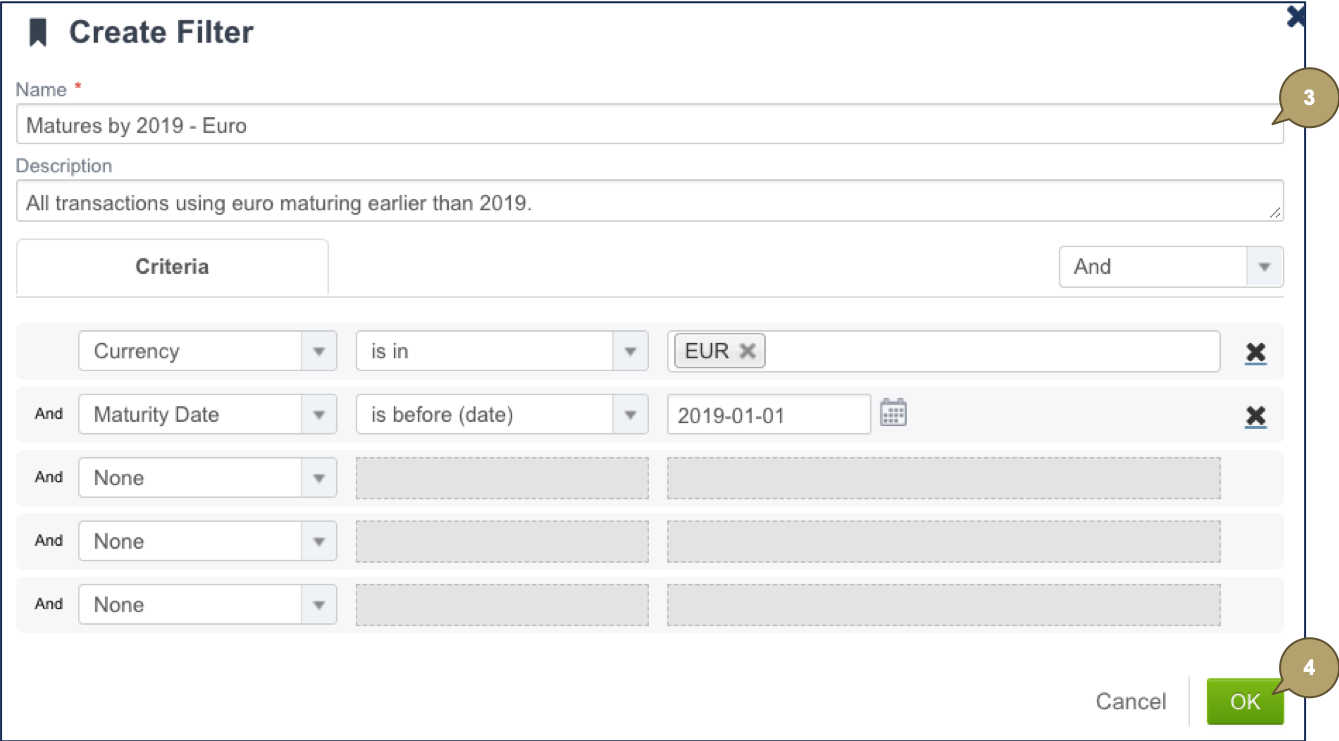
The new filter displays in the Portfolio Filters list...

... and in the Your Filters section.
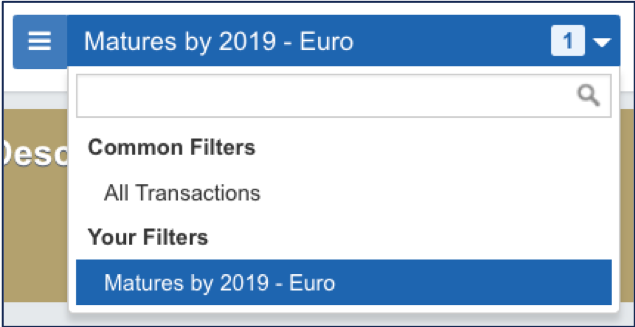
Configure Filter Criteria
| Field | Description |
|---|---|
| And/Or |
Relationship between criteria:
|
| Item | Filter criteria type. |
| Operator |
Defines how items and values match. |
| Value | Defines what matches or does not match the filter criteria. |
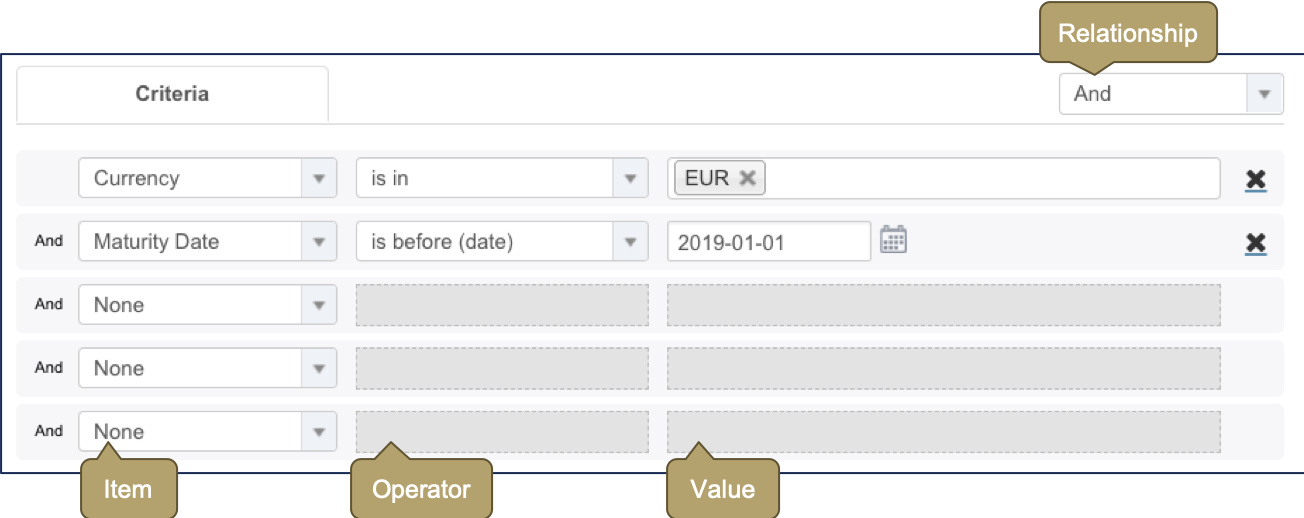
Operator
| Field | Description |
|---|---|
| contains | The item must include the custom string entered. |
| does not contain | The item must not include the custom string entered. |
| name contains | The item name must include the custom string entered. |
| name does not contain | The item name must not include the custom string entered. |
| is | The item must match the custom string entered. |
| is in | The item must match at least one of the selected generic values. |
| is not in | The item must not match any of the selected generic values. |
| currency is | The item must match at least one of the selected currencies. |
| currency is not | The item must not match any of the selected currencies. |
| is lower than or equal to | The item must be lower than or equal to the entered decimal value, e.g. lower than or equal to 1000. |
| is greater than or equal to | The item must be greater than or equal to the entered decimal value, e.g. greater than or equal to 1000. |
| is lower than or equal to (%) | The item must be lower than or equal to the entered percentage value, e.g. lower than or equal to 10%. |
| is greater than or equal to (%) | The item must be greater than or equal to the entered percentage value, e.g. greater than or equal to 10%. |
| between | The item must occur during the selected period, e.g. between 01/01/2018 and 31/12/2018. |
| is earlier than (date) | The item must occur earlier than the selected date, e.g. earlier than 31/12/2018. |
| is later than (date) | The item must occur later than the selected date, e.g. later than 01/01/2018. |
| is earlier than (reference) | The item must occur earlier than the selected time value, e.g. earlier than today. |
| is later than (reference) | The item must occur later than the selected time value, e.g. later than today. |
| is in last | The item must occur during the last selected time period, e.g. last month. |
| is in next | The item must occur during the next selected time period, e.g. next month. |